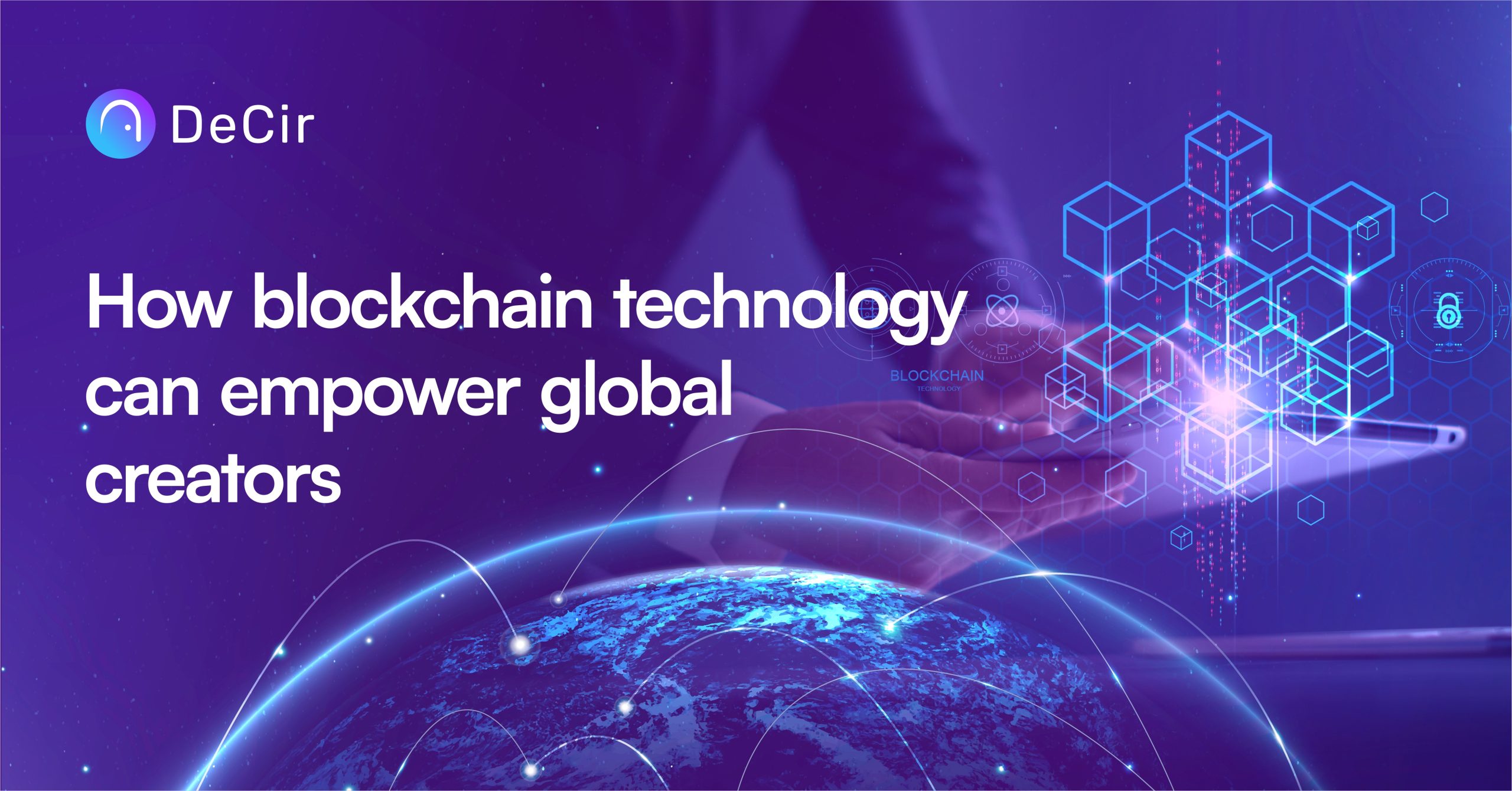Blockchain technology, the backbone of cryptocurrencies, has evolved beyond its financial origins to revolutionize various industries. One area where blockchain truly shines is in empowering global creators. By leveraging the decentralized and transparent nature of blockchain, creators worldwide are enjoying newfound opportunities, enhanced control over their work, and fairer compensation models. In this article, we explore how blockchain technology is empowering creators on a global scale.
TL;DR
- Blockchain empowers global creators by eliminating intermediaries and allowing direct engagement with their audience, fostering closer relationships and personalized experiences.
- The transparency and immutability of blockchain protect creators’ intellectual property rights, providing proof of ownership and enabling automated copyright enforcement.
- Tokenization, crowdfunding, and smart contracts on the blockchain offer new monetization avenues, fair revenue distribution, and micropayment opportunities, empowering creators to pursue their creative endeavors on their own terms.
Decentralization and Direct Engagement
Traditionally, creators have had to rely on intermediaries like publishing houses, record labels, or streaming platforms to reach their audience. These intermediaries often wielded significant control over content distribution and financial transactions, leaving creators with limited autonomy and earning potential. However, blockchain technology eliminates the need for such intermediaries, allowing creators to directly engage with their audience.
Blockchain-based platforms enable creators to publish their work, whether it be music, art, writing, or any other form of digital content, and connect directly with fans across the globe. This direct engagement fosters a closer relationship between creators and their audience, allowing for feedback, collaboration, and more personalized experiences.
Transparency and Copyright Protection
Intellectual property rights are crucial for creators, as they safeguard their work from unauthorized use and ensure fair compensation. Blockchain’s transparency and immutability provide an effective solution for copyright protection.
Creators can register their work on the blockchain, creating an immutable record that proves the existence of their creation and establishes ownership. Timestamps and digital fingerprints attached to the work offer concrete evidence in cases of copyright disputes.
Moreover, blockchain-based platforms enable creators to track and enforce copyright-related transactions automatically. Smart contracts, self-executing agreements built on blockchain, can ensure that creators receive royalties whenever their work is used or shared. This feature not only simplifies the payment process but also ensures that creators receive fair compensation for their intellectual property, regardless of their geographic location.
Also read: Top reasons big brands are embracing NFT
Tokenization and Crowdfunding
Tokenization, the process of converting real-world assets or rights into digital tokens on the blockchain, is another powerful tool for empowering creators globally. Creators can tokenize their work, allowing them to create and sell digital tokens representing ownership, access, or unique experiences tied to their creations. These tokens can be traded on various platforms, creating new avenues for monetization and increasing the value of a creator’s brand.
Additionally, blockchain-based crowdfunding platforms enable creators to directly raise funds from supporters around the world. By issuing tokens to backers, creators can offer exclusive access to their work, limited edition items, or other incentives as a reward for their contributions.
This decentralized crowdfunding model removes geographical barriers and provides creators with an alternative to traditional funding sources, empowering them to pursue their creative endeavors on their own terms.
Fair Revenue Distribution and Micropayments
Blockchain technology addresses the issue of fair revenue distribution by ensuring transparent and automated processes. Smart contracts can be programmed to distribute earnings among creators, collaborators, and other stakeholders based on predefined rules. This feature promotes fairness and eliminates disputes regarding revenue sharing, enabling creators to focus on their craft instead of administrative complexities.
Furthermore, blockchain facilitates micropayments, which are small-value transactions that were previously inefficient due to high transaction fees. Creators can now receive direct and instant micropayments for their work, allowing them to monetize content on a granular level. This opens up new revenue streams, especially in emerging markets where traditional payment systems may not be accessible.
Interesting to read: How to become a successful influencer with DeCir
Conclusion
Blockchain technology has emerged as a game-changer for global creators, revolutionizing the way they engage with their audience, protect their intellectual property, monetize their work, and receive fair compensation. The decentralized and transparent nature of blockchain fosters a more inclusive and equitable ecosystem, where creators have greater control over their creations and a direct connection to their fans worldwide.
As blockchain technology continues to evolve, its impact on the creative industry will only grow stronger. By embracing this transformative technology, creators can unlock new opportunities, expand their reach, and shape the future of their artistic endeavors on a global scale.


